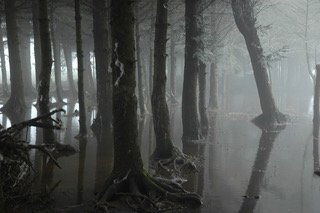Dante Alighieri’s classic The Divine Comedy reveals to us a path towards our own healing. Myths and stories can help us reflect on our own life path.
He begins:
When I had journeyed half of our life’s way
I found myself within a shadowy forest,
for I had lost the path that does not stray.
For many of us it takes a midlife crisis before we realise we have lost our way. For some of us, early trauma forces us to confront our life path sooner if we are to negotiate and heal from, and through, crisis.
The first stanza of Dante’s mythic journey, written in 14th century Italy, invites us to ask some questions about ourselves and our lives:
How do we find ourselves when we are lost?
What is the forest full of shadows we must find our way through?
Where or what is the path that does not stray?
Lost and found are important states for someone who experiences psychological infanticide. When the Death Mother looks at us with negating or destroying eyes we cannot find ourselves and feel disconnected from the deepest self that is the compass guiding us on our true path through life. Learning how to find ourselves when we are lost is essential. Here’s the paradox – the moment you recognise that you are lost you have found yourself. In that moment of consciousness you are here, present, right now.
To recognise – to re-cognise is to bring ourselves back into mind. When no one has kept us in mind before birth, or as infants or children, we can experience that we do not exist. We do not witness ourselves as existing in the eyes, or thoughts of another. Without mirroring we cannot fully sense ourselves in the world. To bring ourselves back into relationship with mind is to become mindful, to gain conscious awareness.
With conscious awareness we must first face into and be aware of the shadows in our personal darkness. They were always there, and now we must acknowledge where we are before we can set a course toward where we want to go. Modern neuroscience now explains for us what ancient wisdom traditions have long known – what we remain unaware of, our unconscious programming, hijacks our lives. But we are not a fixed self but a self designed for responsiveness and transformation. We are not only shaped by our past, we can shape our present and develop the qualities we want to become – that state of equilibrium unrestricted by imprisoning thoughts, beliefs and traumatic body memories. This takes time, and it is not a linear process.
We intuit our true path by listening to the inner guidance of our deepest self, our soul or essence. Being willing to listen inside and be guided by the wisdom there, we learn how to navigate in each moment to what feels right or true for us. The more we do this, the more we feel whole and well. It is in the moments of feeling utterly lost in the darkness that we are most close to our deepest truth if we are willing to risk being in the shadowy forest of life.
Dante therefore maps out an inner journey – an imaginal journey. His map is universal and offers us a means to heal through being aware that we are lost, being willing to face our shadows, and orienting to our authentic self.
I leave you with a question: What are the images that describe your personal journey through life so far? I value your comments.
With you on the journey. – Violet.

Recent Comments